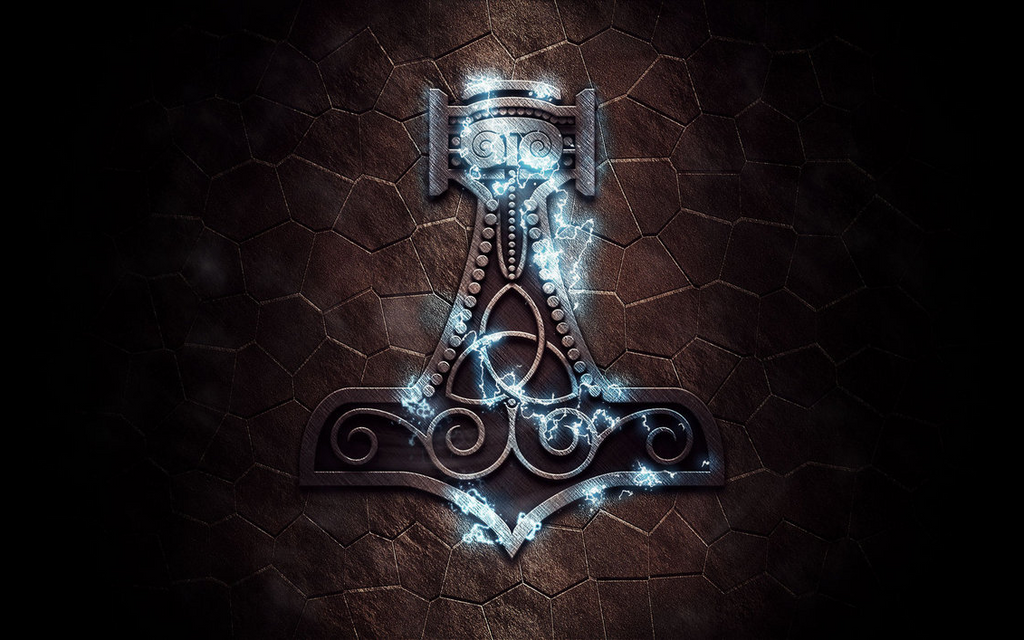6 Norse Gods Empowering the Vikings (Part 1 of 2)
The Vikings had a very special relationship with the Norse Gods. Perhaps everything in the Viking daily life and their society as a whole was associated with their gods and was to make their wish known to gods. The Vikings had to deal with harsh weather and wars so to their belief, it was important to worship Norse gods who could empower them. Below are 5 Norse Gods from whom the Vikings gained strength.
Tyr: Viking God of Honor and Courage
The origin of Tyr varied from accounts to accounts. While many believed Tyr was the son of Odin, other believed he was the mixed god whose parents were god and giant. But no matter what his true origin might be, Tyr did deserve the title of Viking God of Honor and Courage. The most famous story that attested this was the Binding of Fenrir. When Norse gods realized Wolf Fenrir was growing at an incredible speed, they wanted to chain him. But it was not until the third time that gods could finally bind Fenrir to the rock. At their third attempt, Fenrir demanded God make an oath of not playing any trick by putting a god's hand in his mouth. As you guess, except for Tyr, no one dared to approach Fenrir, let alone putting a hand in his mouth. But Tyr did. He volunteered to do so which make he lose his hand.

Fenrir bit Tyr's hand in the Binding of Fenrir
Tyr sacrificed his hand for the good of his clan. It was believed that Tyr was ashamed of breaking oath with Fenrir. He could have withdrawn his hand but he didn't choose to behave like a coward. Tyr is a golden example of "Manner maketh man". (See more: Lessons that We can Learn from Tyr)
Many accounts claimed that Tyr was the Viking supreme god. According to those accounts, as time progressed, Tyr lost his popularity because people got more interest in Odin the Allfather.
Odin: Viking Supreme God of Wisdom and War
Among the most powerful Viking gods, Odin came in the top. Odin was the chief god who presided over Asgard. He was known as the Raven God, the Allfather, the God of Poem and Wisdom, and God of War.
With the numerous wars the Vikings joined, physical strength was not enough. They needed wisdom and mental power as well. Odin was the god who would endow them with such things.

Odin Viking Supreme God
While Tyr presented as a god of justice and honor in war, Odin was the god of mental power that could control both his folks and his enemies at the same time. Odin could strike fear into his enemies making them horror-struck at the battle. In the meantime, he could encourage his folks to pick up their weapons and rocked.
The Vikings respected Odin for his wisdom and his burning desire to learn. The Vikings who worshipped Odin would follow in his footsteps and endeavor to sharpen their wisdom even if they had to make any sacrifice.
Thor: Viking God of Strength and Generosity
In this day and age, Thor is the most famous figure in Norse Pantheon. This is thanks to the modern adaptation of Thor into the blockbuster movie. In the ancient Viking time, the aspects that Thor empowered the Vikings were physical strength and generosity.

Viking God of Thunder and Storm: Thor
Legend had it that in Norse Pantheon, Thor's strength was unsurpassed. With the Mjolnir hammer, Thor filled his enemies with horror and fear. The only figure that could ever beat Thor in Norse myth was Elli who embodied the Old Age that no one could ever win her. Anyway, when the Vikings joined their battles, they would love to wear jewelry of Mjolnir Thor's hammer, making it become the Best Viking Amulet. For the Vikings believed it would offer them with the physical strength of Thor which could smash their enemies into pieces. Besides, Thor not only defended the gods but also the humanity against any negative forces.




